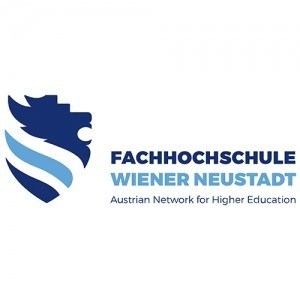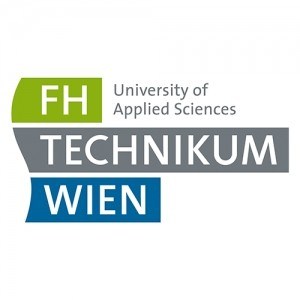Photos of university / #fhwienerneustadt
The Bachelor’s degree programme in Medical Technology at the University of Applied Sciences Wiener Neustadt is a comprehensive and interdisciplinary program designed to prepare students for a dynamic career in the healthcare industry. This innovative programme combines theoretical knowledge with practical training, ensuring graduates are well-equipped to meet the demands of modern medical environments. Throughout the course, students gain a solid foundation in biology, chemistry, and physics, alongside specialized modules in medical instrumentation, diagnostic procedures, and laboratory management. The curriculum emphasizes hands-on experience through internships and laboratory work, enabling students to develop essential technical skills and a deep understanding of clinical processes.
The programme aims to foster not only technical expertise but also critical thinking, problem-solving abilities, and a strong sense of professionalism. Students are introduced to the latest trends and advancements in medical technology, including digital health solutions, automation, and innovative diagnostic tools. Interdisciplinary collaboration is a core component, preparing graduates to work effectively within healthcare teams that include physicians, nurses, and biomedical professionals. Emphasis is also placed on patient safety, quality assurance, and ethical considerations in medical practice.
The Bachelor's programme in Medical Technology at Wiener Neustadt is designed to address the increasing demand for qualified healthcare technicians who can operate and maintain complex medical equipment, interpret diagnostic results, and contribute to patient care. The courses are delivered by experienced faculty with close ties to the healthcare sector, ensuring the curriculum remains aligned with current industry standards and practices. Graduates of this programme are equipped to pursue careers in hospitals, diagnostic laboratories, biomedical companies, and research institutions, or to continue their education through postgraduate studies.
The programme is delivered on a full-time basis, typically spanning six semesters, with a balanced combination of lectures, practical workshops, and experiential learning. Students benefit from modern laboratories, up-to-date technological equipment, and a supportive learning environment that encourages innovation and continuous development. Upon successful completion, graduates receive an official bachelor’s degree that opens doors to diverse career opportunities in the rapidly evolving field of medical technology. The programme aims to produce competent, responsible, and innovative professionals who contribute to enhancing healthcare quality and patient outcomes worldwide.
Structure of Study
Semester 1
Biomedical and IT Fundamentals, Radiation
Protection Course, Scientific Methodology and
Personality Development, Functional Imaging
Technology
Semester 2
Conventional Radiotherapy, Application of
Functional Imaging, Image Processing
Semester 3
Business and Management, Ion Radiotherapy
Technology, Application of Ion Radiotherapy
Semester 4
Master-Thesis
Degree awarded
Master of Science in Engineering (M.Sc.)
The Bachelor’s degree program in Medical Technology at the University of Applied Sciences Wiener Neustadt requires prospective students to possess a secondary school leaving certificate equivalent to the Austrian Matura or high school diploma. Applicants must demonstrate proficiency in the English language, typically proven through standardized tests such as TOEFL or IELTS, reflecting the program’s English-language instruction. Prior knowledge in natural sciences, including biology, chemistry, and physics, is advantageous but not always mandatory, as the program provides foundational courses to prepare students for advanced topics. A motivation letter outlining the applicant’s interest in medical technology and career objectives is generally recommended. Some admission procedures may include an interview or assessment test to evaluate motivation and suitability for the program. Additionally, applicants should fulfill any specific prerequisites set forth by the university for health and safety standards, especially considering the technical and clinical components of the curriculum. The program emphasizes both theoretical knowledge and practical skills, requiring students to complete internships and laboratory work, which are integral parts of the curriculum. These practical components often necessitate a clean bill of health and compliance with safety regulations. Students are advised to have a keen interest in healthcare innovation, biomedical engineering, and technological troubleshooting to succeed in this field. The university encourages applications from international students and offers support for visa procedures and integration into campus life. The program promotes a multidisciplinary approach encompassing medical sciences, engineering, and information technology, preparing graduates for a broad range of roles in healthcare technology sectors. Overall, successful applicants will demonstrate a combination of academic aptitude, technical skills, and a genuine commitment to advancing medical technology, supporting the health and wellbeing of patients through innovative solutions.
Funding options for the Bachelor’s and Master’s programs in MedTech, Functional Imaging, Conventional and Ion Therapy at the University of Applied Sciences Wiener Neustadt are primarily designed to support both domestic and international students in pursuing their technical and health sciences education. The university offers a range of financial aid opportunities, including state funding, scholarships, and grants. Students may also consider government loans and student employment options to finance their studies. Austrian students may benefit from funding programs provided by the Austrian government, such as Studienbeihilfe (student grant), which offers financial support based on individual financial circumstances. International students are encouraged to seek scholarships through the university’s international office or external funding agencies, which sometimes provide merit-based or need-based aid for students enrolled in health technology programs. The university’s partnership with local industry and healthcare institutions may offer additional funding opportunities such as internships with stipends or sponsorships for outstanding students. Furthermore, many students leverage part-time jobs or work-study arrangements to support their studies financially. The university also facilitates guidance on applications for financial aid, ensuring students are aware of all available resources. It is advisable for prospective students to consult the university’s official website or contact the admissions office directly for detailed, up-to-date information regarding specific funding sources, application procedures, and eligibility criteria, as funding opportunities may vary each academic year. Overall, students are encouraged to explore multiple financial strategies and take advantage of all available financial support options to successfully complete their degrees in MedTech, Functional Imaging, or Ion Therapy at the University of Applied Sciences Wiener Neustadt.
The University of Applied Sciences Wiener Neustadt offers innovative and specialized degree programmes in the field of medical technology and imaging. The MedTech programme focuses on the development, maintenance, and optimization of medical devices and systems used in various healthcare settings. Students gain knowledge in biomedical engineering, medical informatics, and clinical practices, preparing them to support healthcare providers with advanced technological solutions. The programme emphasizes practical training, ensuring graduates are well-equipped to handle real-world challenges in hospitals, clinics, and medical device companies.
Functional Imaging is another key area of specialization offered by the university, concentrating on advanced imaging techniques like MRI, PET, and CT scans. This programme provides students with a comprehensive understanding of imaging modalities used for diagnostics and research in medicine, enabling them to interpret complex data and contribute to patient diagnosis and treatment planning. The curriculum combines theoretical coursework in physics, biology, and engineering with hands-on practical experience in cutting-edge imaging laboratories.
Conventional and Ion Therapy are emerging fields focusing on cancer treatment methods. The university’s programmes in this area educate students on the principles of radiation therapy, including traditional methods and advanced ion therapy techniques such as proton and heavy ion therapy. These programmes aim to prepare graduates for specialized roles in oncology centers where precision radiation is vital for effective treatment with minimal side effects. Students learn about the physics of radiation, treatment planning, patient safety, and the latest technological advancements in therapy equipment.
Throughout these programmes, students benefit from close collaboration with healthcare institutions and industry partners, which provides exposure to real-world applications and ensures the alignment of curriculum with technological developments and medical needs. The university prioritizes innovation, interdisciplinary collaboration, and practical skills, making its graduates highly competitive in the growing field of medical technology and imaging. Upon completing their studies, graduates are prepared to work in hospitals, clinics, medical device manufacturing companies, and research institutions, contributing to advancements in healthcare technology and patient care. The university also promotes research and development activities, encouraging students to participate in projects that advance medical diagnostics and treatments. Overall, the programmes at the University of Applied Sciences Wiener Neustadt serve as a comprehensive gateway to the fast-evolving healthcare technology sector, emphasizing practical skills, innovation, and future-oriented education.







